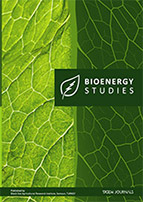Turkish Journal of Fisheries and Aquatic Sciences
2014, Vol 14, Num, 5 (Pages: 993-1000)
Partitioning and Level of Organochlorine Compounds in the Tissues of the Black Sea Turbot at the South-Western Shelf of Crimea
In BST tissues sum of DDT compounds ranged on average from 2.5 to 223.9 ng.g-1 wet weight, and sum of six congeners of PCB dominated by hexa-CB 138 and 153 congeners had an overall range 2.0-234.3 ng.g-1 wet weight. The main DDT compound detected in BST were the metabolites p,p’-DDE and p,p’-DDD (83% of ΣDDT) indicative of old DDT residues. OCs concentrations positively correlated with extractable lipid content in BST tissues. Sex-related pattern of OCs accumulation in different tissues of BST was found. On average, OCs concentration (on wet weight basis) in liver was twice higher in male than that in female, while OCs concentration in gonads were lower in male than that in female
Keywords : Fish, Black Sea turbot, organochlorine contaminants, polychlorinated biphenyls, DDT, DDE, DDD















